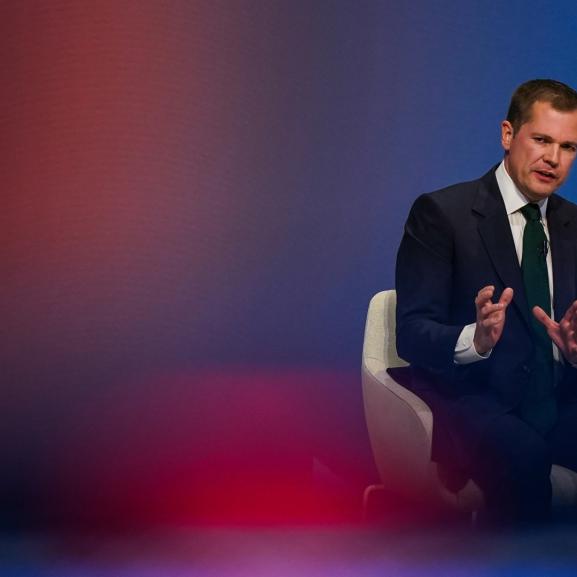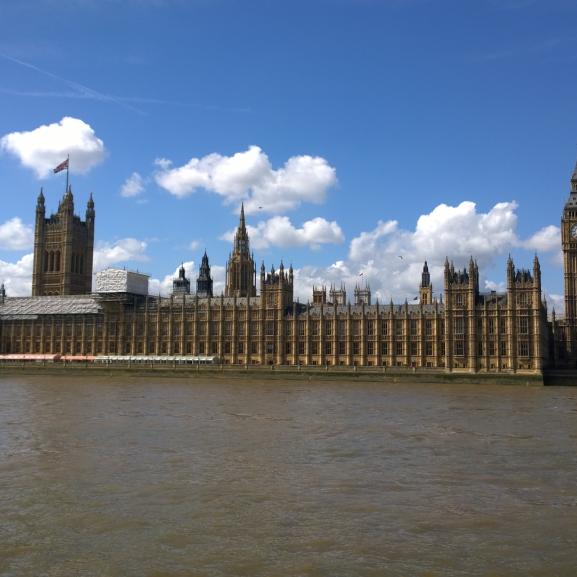Report from the Labour Party Conference
By Sile Reynolds, Lead Asylum Policy Advisor
At this year’s conference it seemed that Labour was selling a new political era; almost every speaker reiterated the same handful of key words: values, ethics, principles, rule of law.
Jeremy Corbyn MP’s keynote speech was nothing if not ambitious as it heralded the birth of a new economic model, made possible – he suggested - by the shifting of the political centre ground. Both Jeremy and Emily Thornberry MP argued for a foreign policy approach that puts human rights, peace and justice, and respect for the rule of law at its heart.
As a human rights organisation with an interest in how the UK builds trade and foreign policy relationships with states who torture their people, it is encouraging for Freedom from Torture to hear Labour advocate for an ethical foreign policy and a ‘radical revolution of values’. This commitment to universal values and human rights filtered through to the fringe events, where Lisa Nandy MP spoke passionately about putting human rights back into the social justice debate in the UK. She recognised the suspicion that many communities – particularly those with the least purchasing power – feel towards the concept of human rights and argued that Labour needs to make human rights feel relevant in this ‘age of anger’.
Both Keir Starmer MP and Jeremy dismissed ‘arbitrary immigration targets’ with Keir – a dedicated supporter of our Proving Torture campaign - calling for a ‘better, fairer, more inclusive Britain’.
Across the board, Labour MPs talked about defending the principles of human rights, fairness, solidarity and equality. But they wanted to talk about labour rights, living standards, housing, security and the economy. Immigration wasn’t entirely absent, of course, but it didn’t have the profile of previous years.
Both Keir Starmer MP and Jeremy dismissed ‘arbitrary immigration targets’ with Keir – a dedicated supporter of our Proving Torture campaign - calling for a ‘better, fairer, more inclusive Britain’. Shadow Home Secretary Diane Abbott MP criticised the Conservatives for ‘weaponising immigration’ and called for an end to indefinite detention. It was reassuring to hear her condemn asylum housing, the poor condition of which we highlighted in our Poverty Barrier research and which Labour has committed to review.
Yvette Cooper MP was strong on the need for Labour to sustain a commitment to refugees and the principle of sanctuary. She spoke repeatedly about the need for full implementation of the Dubs amendment to relocate refugee children from within Europe to the UK, and the importance of retaining the family reunion provisions, currently within the Dublin III Regulation, after Brexit. She also warned against the two-tier protection system that has developed under the current Government, privileging resettled refugees over those who arrive by their own means.
Yvette was joined in defending the Dublin Regulation and Dubs amendment by Lord Alf Dubs himself. Appearing at Freedom from Torture’s fringe event, he emphasised the critical importance of a Government that meets its international obligations to those fleeing persecution.
Our event also heard from Joan Ryan MP, barrister Sonali Naik and Jonathan from Survivors Speak OUT. Discussion focused on the critical issues raised by our Proving Torture report, and the challenges faced by torture survivors who are routinely disbelieved by the Home Office, and whose independent evidence of torture is misunderstood and dismissed.
Naomi Klein, the international guest speaker, drew all the strands together and made the most explicit connection between the exploitation of workers (the “gig economy”), the exploitation of natural resources (the “dig economy”) and the West’s history of draining poorer countries of both.
Another compelling message came from an unexpected source. Naomi Klein, the international guest speaker, drew all the strands together and made the most explicit connection between the exploitation of workers (the “gig economy”), the exploitation of natural resources (the “dig economy”) and the West’s history of draining poorer countries of both. She made a clarion call for the UK to welcome migrants and refugees, and was met with resounding applause.
Labour MPs made a lot of promises this week, and we very much hope that this leads to a bold and ambitious commitment to put values, ethics, principles and the rule of law at the heart of Labour refugee policy. The next 12 months will be crucial as a new Immigration Bill makes its way through parliament in early 2018. We’re looking forward to seeing how Labour deals with some of the thornier issues within immigration policy, including the principle of access to protection in the UK, threats to the definition of a refugee, and the treatment of those refused asylum.






